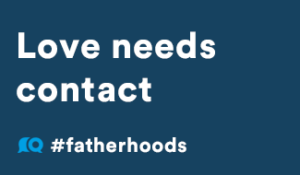Grandparents often play an integral role in their grandchildren’s lives providing valuable support. However, in some cases, for example where the parents are unable to look after a child, a grandparent might assume a parental role by caring for the child full time. In such a situation a grandparent would need to have the legal status to be able to make important decisions involved in the child’s upbringing.This is called having ‘parental responsibility’(PR).
Acquiring PR
A grandparent can obtain PR for a grandchild through the court granting them a Child Arrangements Order (CAO) or by being appointed Special Guardian of their grandchild.
Other ways of acquiring PR as grandparents are by obtaining an adoption order or by becoming the child’s testamentary guardian. In care proceedings a grandparent who acquires an Emergency Protection Order will be granted limited PR for as long as the order remains inforce.
The two main legal options for grandparents raising grandchildren and wishing to formalise the arrangements are:
Applying to the court for a Child Arrangements Order
This is an order made under section 8 of the Children Act 1989 regulating with whom a child will live, spend time or otherwise have contact.
Generally, grandparents do not have an automatic entitlement to apply for a Child Arrangements Order and they must obtain permission from the court before they can apply.
There are some exceptions to this such as:
- If the grandchild has lived with them for a minimum of one year immediately before the application (in cases where the grandparent seeks a CAO naming them as a person the child shall live with).
- If the grandparent has the consent of every person who has PR or who is named in a CAO as a person with whom the child lives.
- If the child is in the care of a local authority and the local authority consents.
- If the grandparent is already named as a person in a CAO as someone with whom the child is to spend time.
Otherwise the grandparent must apply for permission. Indeciding whether to grant permission the courts consider:
- The nature of the application;
- The applicant’s connection with the child;
- Any risk that the proposed application might disrupt the child’s life;
- The local authority’s plans for the child’s future and the wishes and feelings of the child’s parents (in cases where the child is under the care of the local authority).
Even where permission is given this does not necessarily mean that the court will make a CAO providing for the child to live with the grandparent(s). This will depend on what the court considers are the best interests of the child determined in accordance with the Welfare checklist at section 1 of the Children Act 1989 (see Question 55). The court will also bear in mind the need to avoid anydelay in reaching adecision.
If the court makes a CAO naming a grandparent as a person with whom their grandchild is to live they will have PR while the order is in force. The order will usually last until the child is 16.
Applying to the court for a Special Guardianship Order
A Special Guardianship Order (SGO) confers PR for the child on the Special Guardian until the child is 18. An SGO is often made where children are being cared for long-term by members of their extended family but adoption is not suitable and the child cannot be cared for by the parents.
The SGO provides the Special Guardian with more secure legal status than being named under a CAO partly because the parent(s) cannot apply to the court to discharge it unless they have permission to do so. Also, whilst the parents retain PR for the child, their ability to exercise it is limited. In the 2006 case of S v B and Newport City Council; Re K, the Judge stated that Special Guardianship allows “familial carers, who are not parents, to have all the practical authority and standing of parents, while leaving intact real and readily comprehensible relationships within the family”.
The following people can apply for an SGO:
- A person named in a CAO as a person the child shall live with;
- A person with whom the child has lived for 3 of the last 5 years and within the preceding 3 months;
- A person who has the consent of all those with PR for the child;
- Any person with permission to make the application;
- Foster parents with whom the child has lived for 1 year before the application.
Notice of intention to apply for an SGO must be given to the Local Authority and the applicant will undergo an assessment (similar to a foster carer assessment) so the court can be satisfied that making a SGO will be in the child’s best interests. As with a CAO the child’s welfare is paramount.
Local authorities are required under the Children Act to make arrangements to provide support for Special Guardians. This may be counselling, advice and information or other services including financial support.
There is a discretionary Special Guardianship Allowance which is means-tested and the Special Guardian can also claim child benefit. This is often a crucial factor for grandparents in deciding whether or not to apply for an SGO, or agreeing to be appointed as an SGO in any care proceedings as a ‘Kinship Carer’.
Before applying for an SGO or CAO a grandparent will usually need to attend a Mediation, Information and Assessment Meeting (MIAM) to investigate whether mediation may be appropriate.
Whilst it is possible for a grandparent to apply to adopt their grandchild this would not usually be considered the best option as the adoption would sever links with the birth parents.
Posted on November 5, 2019














